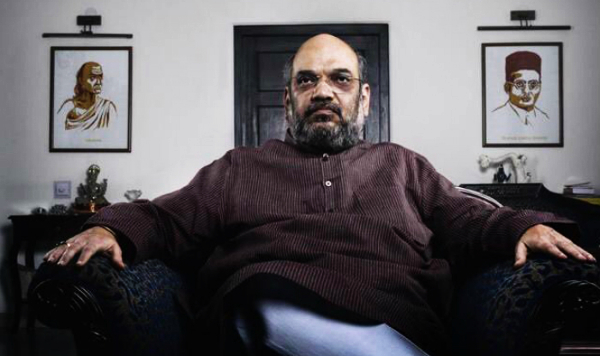The Amit Shah-headed cooperation ministry created by the Narendra Modi government is likely to launch an open, digitised platform for cooperatives, the first of a series of tasks being taken up to overhaul the sector, said a person familiar with the matter.
A national software platform, which will be available in local languages, will link primary agricultural credit societies (PACS), district cooperative banks, and the National Bank for Agriculture and Rural Development (NABARD), potentially creating an integrated financial grid.
The ministry will create 300,000 PACS, so that for every one or two villages there is one PACS. The digitised platform is aimed at boosting its reach and transparency.
PACS are village-level lending networks that are often the first stop for farm loans in a country where big scheduled commercial banks still don’t adequately cover the poor.
“A digital platform is among many things being considered because the cooperative sector will be a major contributor towards the milestone of $5 trillion economy and a cooperative-based economic model,” the official quoted above said.
A basic task will be to computerise so-called primary agricultural credit societies or PACS which are critical financial services centres for farmers across the country.
The Modi government will also bring changes in laws to strengthen cooperatives, home and cooperation minister Amit Shah recently said, while detailing an agenda to reset governance in a sector critical to the rural economy.
In July, Prime Minister Narendra Modi shuffled his cabinet, carving out a new ministry of cooperation, which was earlier a department under the agriculture ministry.
The new ministry would focus on building cooperative societies as a pivot of a whole gamut of economic activities in the rural sector, from farm inputs to credit.
“We are bringing within a short time changes to the Act to smoothen processes in areas like multi-sector cooperatives. This will be a big step in our march towards development. We have decided that shortly we will have a new cooperation policy. First, Atal (Bihari Vajpayee)-ji brought such a policy in 2002. Now, Modiji will bring (a new policy) in 2021-22,” Shah had said at a conference of cooperative societies in September.
Cooperatives are governed by two main legislation, the Cooperative Societies Act 2012 and the Multi-state Cooperatives Act 2002.
Cooperatives are collectives of small producers who pull in their resources to achieve scale and collective bargaining power in markets.
India’s cooperative sector is the world’s largest and covers almost 98% of the countryside, with over 900,000 societies with a membership of about 290 million people, according to data from the National Cooperative Union of India.
While there are some iconic cooperative businesses in the country, such as dairy giant Amul and seasoned flatbread-maker Lizzat Papad, as well as the fertiliser chain IFFCO, the sector in many areas is hobbled by inefficiencies and opaque patronage systems.
Cooperative banks, both urban and rural, are lending institutions registered under the Cooperative Societies Act, 1912. They are usually run by an elected committee.
In March, Parliament passed a law to bring them under the oversight of the Reserve Bank of India after several such banks faced financial crises.
“Processes governing cooperative institutions will have to be made transparent, which are likely to be reflected in the proposed law. Digitisation is a step towards that,” the official said, adding the new changes are aimed at bringing ease of doing business for cooperatives and development of multi-state cooperatives.
Digitisation of the cooperative sector would be the key to its transformation. “The potential of everything from Kisan credit cards to all kinds of priority sector lending will be increased through the platform,” the official said.
Source: HT
You may also like
-
Navigating India’s Skill Landscape
-
Trade Connect E-platform For Exports Is Single Window, Fast, Accessible And Transformational: Shri Piyush Goyal
-
India-us Working Together In Areas Like Critical Minerals, Supply Chains And Advanced Technologies: Shri Piyush Goyal
-
Cabinet Approves Health Coverage to All Senior Citizens of the Age 70 Years and Above Irrespective of Income
-
Cabinet Approves PM Electric Drive Revolution in Innovative Vehicle Enhancement (PM E-DRIVE) Scheme With An Outlay of ₹.10,900 Crore
